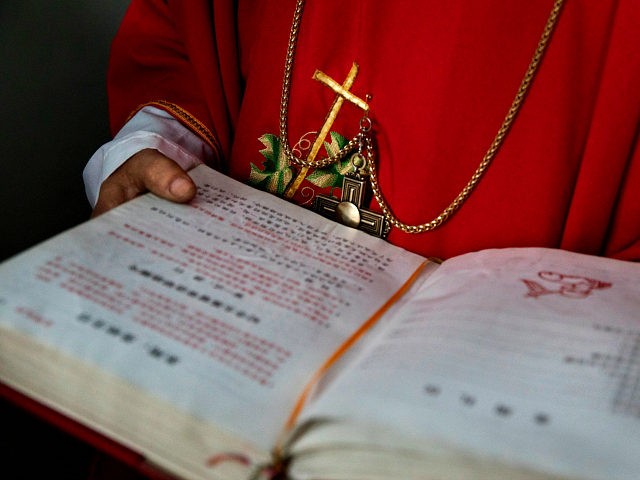The Chinese Communist Party (CCP) has adopted new Administrative Measures to restrict the spreading of religious content via the internet, Bitter Winter revealed Wednesday.
The measures, which will go into force on March 1, 2022, include a stipulation that any reference to religion on the web is illegal unless the sender possesses an “Internet Religious Information Service License.”
Internet users without a license may not share images or comments on “religious ceremonies such as worshiping Buddha, burning incense, taking ordination, chanting, worship, mass, and baptisms,” the provisions state.
Xi Jinping has complained that the internet is being used to share religious content in order to win over converts, which is forbidden, Bitter Winter reported.
Only members of the five authorized religions may apply for an Internet Religious Information Service License, since other religions are considered illegal, yet even those who are granted a license will be subject to surveillance and restrictions.
Sermons or lessons broadcasted over the internet, for instance, will be checked by authorities to make sure their content is “Sinicized” and promotes Socialist values in support of the Communist Party. Article 3 declares:
Engaging in Internet religious information services shall abide by the Constitution, laws, regulations and rules, practice the core socialist values, adhere to the principle of independence and self-management of religions in China, adhere to the direction of the Sinicization of religions in China, and actively guide religions to adapt to socialist society, to maintain religious harmony, social harmony, and national harmony.
Since minors are not permitted to be exposed to religious content, anyone attempting to make content available to children will have his license revoked.
“Overseas organizations or individuals, even if resident in China, are not allowed to engage in Internet religious information services in China,” the regulations specifically declare.
The Administrative Measures were promulgated by the State Administration of Religious Affairs, the National Internet Information Office, the Ministry of Industry and Information Technology, the Ministry of Public Security, and the Ministry of National Security.

COMMENTS
Please let us know if you're having issues with commenting.